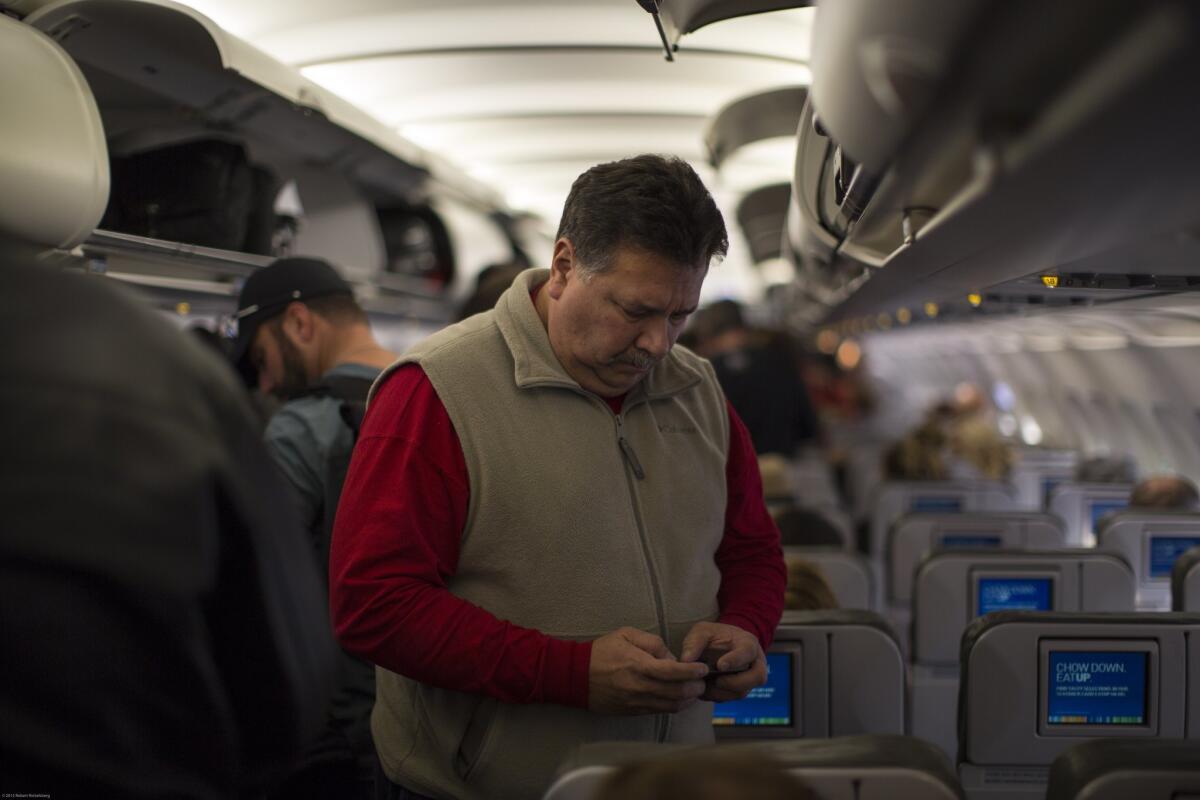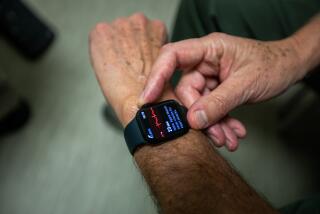Flight attendants challenge FAA on electronic devices

- Share via
Flight attendants battled federal aviation officials in court Friday to keep airline passengers from using electronic devices during takeoffs and landings.
The Assn. of Flight Attendants asked a three-judge panel of the U.S. Court of Appeals for the D.C. Circuit to overturn a ruling the Federal Aviation Administration made last year easing the use of computer tablets and smartphones on planes.
The flight attendants said the FAA violated the rule-making process when it lifted restrictions that prevented passengers from using electronic devices on takeoffs and landings
The FAA changed the rules without taking in public comment, the flight attendants argued. The union also worries that electronic devices can bounce around the cabin during turbulence and injure passengers.
“When an agency proposes a controversial change in a rule that affects public safety, it must be made through the proper rule-making process,” the flight attendants said in a court document.
But the Court of Appeals seemed to be siding with the FAA.
“Airlines have always had discretion on how to handle this,” Judge Harry T. Edwards told a lawyer for the union, according to the Associated Press. A final written ruling is expected to be released later.
Under the new FAA rules, electronic devices must be kept in “airplane mode” during takeoffs and landing. Voice calls are still forbidden on U.S. airlines.
“We are confident in our position that the FAA violated the administrative procedure act in enacting a new national policy that directly conflicts with an existing regulation,” said Amanda Dure, an attorney for the 60,000-member flight attendants union.
The FAA declined to comment on the case.
To read more about travel, tourism and the airline industry, follow me on Twitter at @hugomartin.
More to Read
Inside the business of entertainment
The Wide Shot brings you news, analysis and insights on everything from streaming wars to production — and what it all means for the future.
You may occasionally receive promotional content from the Los Angeles Times.











